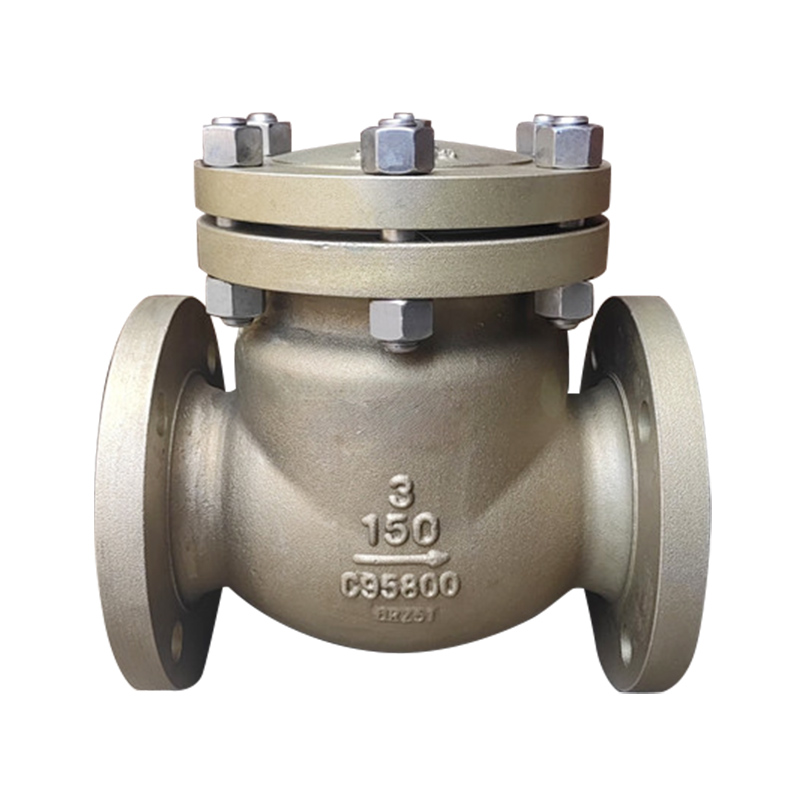
Check valves are essential. They stop water or gas from going the wrong way. The water can only flow one way. If it tries to go back, the valve closes and stops it. This helps to keep the system working right and keeps everything safe. Without it, water could flow backward, causing significant problems. These valves are very simple. They let water go only one way. They stop water from going back. This helps keep things clean and safe. If there is no check-valve, water can flow backward. This might cause leaks. Dirty water could mix with clean water. That is not good. These valves are used in water pipes, oil pipes, and even in big factories. They are small, but they do an essential job. These check valves are easy to understand. They open when water moves forward. They close when water tries to go back. Inside the valve, there is a part that moves. This part can be a ball, a flap, or a disc. When water flows the right way, the valve stays open. When water stops or tries to flow backward, the valve closes quickly. This keeps things working the right way. It also protects the pipes and pumps from breaking. There are many kinds. Each one is good for a unique job: Swing Check-Valve: This one swings shut to stop water. It is excellent for big pipes that carry lots of water. Ball Check-Valve: This one has a ball inside. The ball blocks water from going back. It works well for small pipes. Lift Check-Valve: This valve lifts up to let water go through. It is best for strong water flow. Sump Pump Check-Valve: This valve stops water from going back into the pump. It helps keep basements dry. Air Compressor Check-Valve: This valve stops air from going back into the machine. It helps the machine last longer. Pool Check-Valve: This valve stops pool water from flowing the wrong way. It keeps the pipes safe and clean. Some places are tough on valves. These places need strong materials. Aluminum bronze swing valves are a good choice. They do not rust. They last a long time. Stainless steel is also strong and does not rust easily. For very tough places, you can use titanium. Some plastic valves like PVC are also suitable for areas with acids or salty water. Testing it is very easy. First, turn off the water. Then, check if the valve closes when the water stops. Look carefully to see if there are any leaks. Listen for strange sounds. Testing the valve often helps keep the system safe and working well. Sometimes, these valves can have problems. Here are a few: Leaks: Dirt or wear can cause the valve to leak. Clean it or replace the seal. Not Closing: Something might block the valve. Remove the blockage. Check the spring or other parts. Rust: Rust makes valves weak. Use rust-proof materials. Clean the valve often. Noise: A noisy valve might need checking. It could be old or installed wrong. They stop dirty water from mixing with clean water. This keeps people healthy. On farms, these valves help water flow to crops. Without them, water could go the wrong way and cause problems. They also help in homes, keeping water systems safe and clean. Pumps and compressors need these valves. These valves stop water or air from going the wrong way. This protects the pump or compressor from breaking. It also helps them last longer. Air compressors valves to keep air pressure steady. For water pumps, they stop backflow. This keeps the pipes and pumps safe and working well. If you need valves, go to Shangtie Valve Technology Co., Ltd. They make strong and suitable valves. Their valves work well in many places. Visit their website to pick the right one for your system. Their products are strong and last a long time. Here are some of the best valves: Swing Check Valve: This valve works well in big systems. It is easy to use and firm. Aluminum bronze swing check valve: This valve is excellent for challenging places. It does not rust and lasts a long time. API Cast Steel Check Valve: This valve is substantial and works well with high water pressure. It is very durable. These valves stop backflow and keep everything safe. Pick the one that works best for your system. Check stops prevent water from flowing the wrong way. They are essential because they keep things safe. Without them, there could be significant problems.Can Check Valves Stop Backflow in Fluid Systems?

How Do Check-Valves Work?
What Types of Check-Valves Are There?
Materials that Are Best for Corrosive Areas
Best Way You Can Test a Check Stop
What Problems Happen With Check-Valves?
Do We Need These Valves in Water Systems?

How Do Check-Valves Help Pumps and Compressors?
Who Sells Good Quality Valves?
What Valves Stop Backflow Best?


